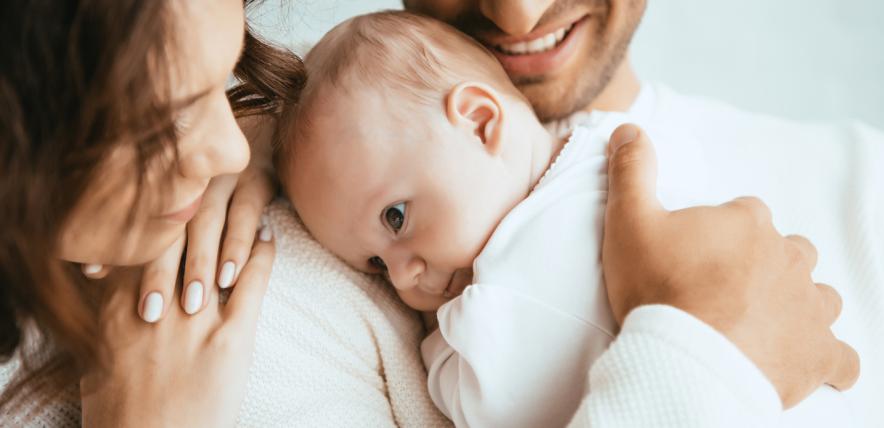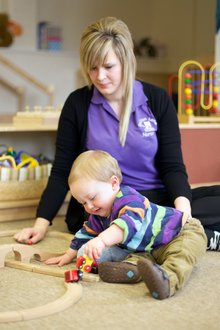By Victoria Brelsford
Did you know that a newborn’s brain is a quarter of the size of the adult brain? But by 6-months old it will have doubled in weight, and by 5-years old a child’s brain will have reached 90% of its adult weight!
Amazing facts about your infant’s brain development
Amazingly, your baby’s brain contains between 100-200 billion cells, these cells are called neurons. By the age of 5-yrs old, your child’s brain will be nearly adult sized. This rapid growth is due to more connections being formed between neurons which means the brain cells are communicating with each other.
Some areas of the brain take longer to develop than others. One of the last areas to fully develop is the front of the brain which is responsible for more complex behaviours such as thinking and problem solving.
When neurons communicate, they start to form pathways in the brain. Strong pathways are needed for healthy development and will support your child to grow, develop, and learn. Neurons which do not communicate with each other will lose their ability to do so.
The importance of healthy brain development
Healthy brain development in the early years is vital for every aspect of your child’s development
Babies learn from the behaviours of those around them. The quality of interaction with your baby can make a huge difference to their brain development. Good quality interactions will also strengthen your bond and support your baby to have healthy relationships with others in the future.
It is important to remember that exposure to highly stressful experiences can have a negative impact on a baby’s brain. Too many stress hormones over long periods of time can affect the development of pathways within the brain which can harm your baby’s long-term outcomes.
What can parents do to support healthy brain development?
- Be responsive: responding to your baby in appropriate ways will help them to feel safe. Make eye contact when interacting with your baby. If your baby is upset, reassure them by comforting while speaking quietly and calmly. If your baby shows excitement respond with smiling and use the tone of your voice to show you are excited too.
- Physical contact: touch releases ‘feel good’ hormones which are important for healthy human relationships. Daily activities such as feeding and washing all include touch. Cuddling, stroking or holding your baby when upset will also help them to feel safe and comforted.
- Relax: babies pick up on emotional signals from others. It is important to be calm around your baby. Avoid rushing to get jobs done and build routines which are relaxed, for example winding down routines before bedtime. Give yourself time to relax and enjoy your precious time together.
- Play: share fun activities and time together, for example playing ‘peek-a-boo’ or singing nursery rhymes with actions. Use the tone of your voice and facial expressions to communicate positive emotions. These shared play activities do not cost money and are important in helping your baby to understand shared feelings.
- Talking: talk to your baby lots! This could be counting the objects around you, talking about the weather, or what you will be doing later. Babies babbling will soon turn to early words, and the rapid development of language. Talking to your baby involves joint attention, turn-taking and a shared experience which are all crucial to healthy brain development.








